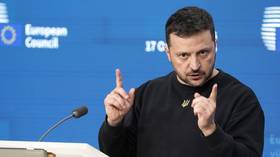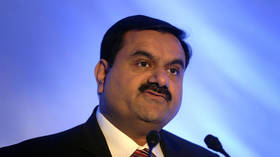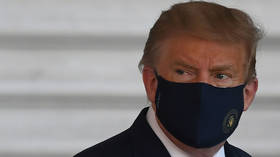Facebook breakup would be ‘complete nonstarter’: Memo leaked ahead of antitrust report
Separating Facebook from Instagram and WhatsApp would harm consumers, cost billions and defy US law, the social media giant argues in a memo leaked to the media ahead of a congressional report expected to advise otherwise.
The 14-page document was reviewed by the Wall Street Journal over the weekend and amounts to a preview of Facebook’s defense against the pending report from the House Antitrust Subcommittee.
FB says breakup would be a “complete nonstarter” ... as if theirs is the only view that matters. A breakup alone will not eliminate threat FB poses to democracy, public health, privacy, innovation, but it would be a fine place to start. h/t:@hoofnaglehttps://t.co/HnD50ubAJa
— Roger McNamee (@Moonalice) October 4, 2020
Facebook’s acquisition of WhatsApp in 2014 and Instagram in 2012 were examined and unanimously approved by the Federal Trade Commission (FTC), the paper argues. Since then, Facebook has made major investments in both platforms and they now share numerous integrated operations. Splitting them up would be nearly impossible, costing billions of dollars, weakening security and harming user experience, Facebook argued.
A ‘breakup’ of Facebook is thus a complete nonstarter.
The paper also argues that going back on the government’s approval of the mergers would “send a disquieting message to the business community.”
Facebook’s argument may yet backfire, however, as deliberately integrating the messaging and photo-sharing apps to prevent competition or forestall antitrust measures could bolster the government’s case for a breakup, noted one critic, Rutgers Professor Michael Carrier.
I explain that when Facebook bought Instagram and WhatsApp, it promised to keep them separate. The antitrust question now is why they’re integrating them. If the only reason is to hurt competitors or forestall an antitrust remedy like breakup, that could present concerns. https://t.co/EWZ2ujWWKs
— Michael Carrier (@profmikecarrier) October 2, 2020
The FTC has reportedly been preparing a complaint against Facebook, and its CEO Mark Zuckerberg is suddenly finding himself with few friends in Washington. Democrats, who once lavished praise on the Menlo Park behemoth, have since singled it out for allowing President Donald Trump’s 2016 campaign to leverage Facebook for voter outreach.
Republicans, meanwhile, accuse Facebook of trying to appease liberal critics by censoring, banning or blocking posts made by conservatives. Once considered an asset, Facebook’s massive reach – and outsized influence on US politics, real or imagined – seems to have transformed into a liability.
Also on rt.com A bit too late? Senate committee to grill Google, Facebook & Twitter CEOs on ‘domination & legal liability’ days before election
Zuckerberg has been summoned to another virtual hearing at the end of October, this time before the Senate’s Commerce Committee. The Republican majority is expected to focus on social media giants abusing their protections under Section 230 of the Communications Decency Act, while Democrats want to see them crack down harder on what ranking member Sen. Maria Cantwell (D-Washington) described as “hate speech or misinformation about Covid during a pandemic.”
The same dynamic was at work in July, when Zuckerberg testified before the House Antitrust Subcommittee alongside fellow CEOs Tim Cook of Apple, Jeff Bezos of Amazon and Sundar Pichai of Alphabet, Google’s parent company. While Republicans hammered the platforms on censorship and political tilt, Democrats talked about breaking them up over alleged monopolistic practices.
Also on rt.com Facebook bans all US ads criticizing voting fraud, election results or methods after angry letter from Biden campaign
While none of the social media platforms appear the slightest bit concerned about a Section 230 crackdown, the Democrats’ messaging about antitrust moves seems to be getting their attention. Last week, Facebook announced new rules on what’s allowed in election ads, within a day of receiving an angry letter from Joe Biden’s campaign about allowing “misinformation” ostensibly pushed by President Trump.
Think your friends would be interested? Share this story!














